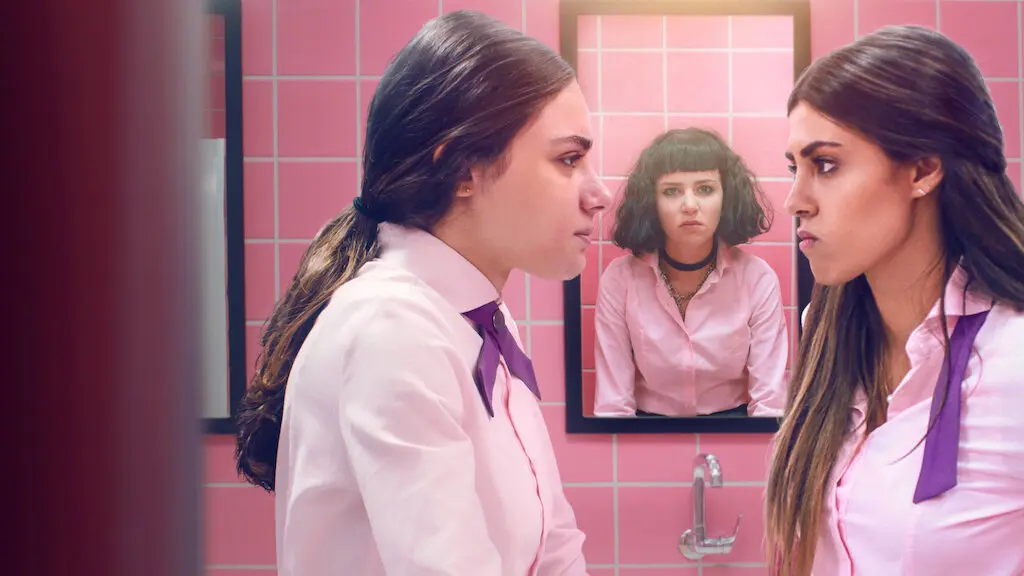Summary
AlRawabi School for Girls reworks the Mean Girls formula with an even more lacerating attitude as bullied teen girls rise up against their tormentors.
Tima Shomali’s Arabic-language AlRawabi School for Girls delivers one of the more universally digestible high-school dramas in a while: Season 1 brings a straightforward revenge plot that reworks the old Mean Girls formula, it relies on relatability – and a surprisingly decent English-language dub full of regional limey accents – to appeal to Netflix’s vast global userbase. Since every culture in the world has teenagers and bullies, it’s a safe bet that this six-episode limited series will win some fans all over the place.
AlRawabi School for Girls Season 1 Review and Plot Summary
The aforementioned Mean Girls and shows like Get Even provide a rubric for this cliquey drama. Little about it is original, and that’s probably its greatest strength; it hits the expected beats with confidence, explores the usual themes, and gives the typical archetypes their just desserts.
It’s a story built explicitly on catharsis, on making you long for each despicable character to get their comeuppance and delight in it when they do. The conflict is clear-cut, and there’s no ambiguity around who you’re supposed to be rooting for.
Well, at first, anyway. A school trip in the penultimate episode expectedly muddies the waters a bit, but it’s about time by then. AlRawabi School for Girls earns the way it shakes up the dynamics after putting in the necessary work early.
With a clearer sense of who’s who and what’s what, the revelations are rewarding rather than out of left field, though it’s the earlier, more lacerating portions of the show that are the most propulsive, even if they’re often difficult to watch.
Our protagonist is Mariam, whom we meet getting badly beaten up by resident mean girls Layan, Rania, and Roqayya. You know the type. The queen bees are beautiful, fashionable, and Layan’s father is an influential type who can make or break the all-girls private school if he feels like it.
Thus, these three can get away with murder, and are untouchable even by the faculty, at least until Mariam, along with her friend Dina and new girl Noaf, decide to get their own back in various equally terrible ways.
That’s the moral lesson, obviously – bullying is terrible, but bullying in response is pointless, creating a never-ending cycle of bitterness and spite that only causes pain. The show lets you get on-side with Mariam by making her tormentors outlandishly awful and depth-averse but then makes you feel bad for rooting for their downfall by drip-feeding you more details about their respective backstories and personal problems. It’s a classic formula and an expected lesson, but one that’s easy to take in thanks to the show’s simple drama and sure pace.
Some cultural specificity complicates matters. The way women – especially young women – are viewed in society makes those who’re being victimized feel even more trapped; rumors that originate at school bring can bring shame on the entire family, and various unfeeling parents – on both sides of the moral divide – berate all the girls for simply trying to grow up and express themselves.
Even the teachers perpetuate the misogyny, more concerned with how much skin the girls are showing than how they’re actually feeling.
This is welcome complexity, though it doesn’t change the broad strokes of the narrative (and the most conservative older teacher, Ms. Abeer, is also explicitly played for comic relief.) Eventually, though, the bullies, particularly Layan and Rania, are easier to get on board with than Mariam, Dina, and Noaf, who get carried away on their revenge mission and begin to come apart at the seams. Layan and Rania are mostly awful, but at least they’re consistent.
Is AlRawabi School for Girls Season 1 worth watching?
Then again, the whole school seems awful, and that exaggerated idea of the bitchy teenager is taken to an extreme here that some might find slightly unrealistic. Luckily, the core performances keep things pretty grounded, and their stories are consistently engaging throughout all six episodes.
AlRawabi School for Girls might not win any awards for originality, but it’s an enjoyable, competently put-together slice of genre fiction all the same.
RELATED: AlRawabi School for Girls Season 1 Ending Explained




